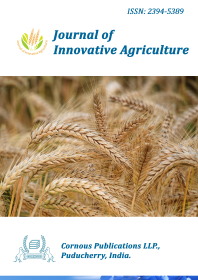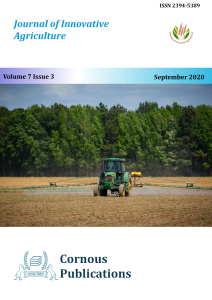
Journal of Innovative Agriculture
Peer Reviewed Open Access Journal
ISSN: 2394-5389 NAAS: 4.05
Submit Manuscript
Peer Reviewed Open Access Journal
ISSN: 2394-5389 NAAS: 4.05
Submit ManuscriptOPEN ACCESS | Published on : 30-Sep-2020 | Doi : 10.37446/jinagri/ra/7.3.2020.1-9 | Pages : 1-9
